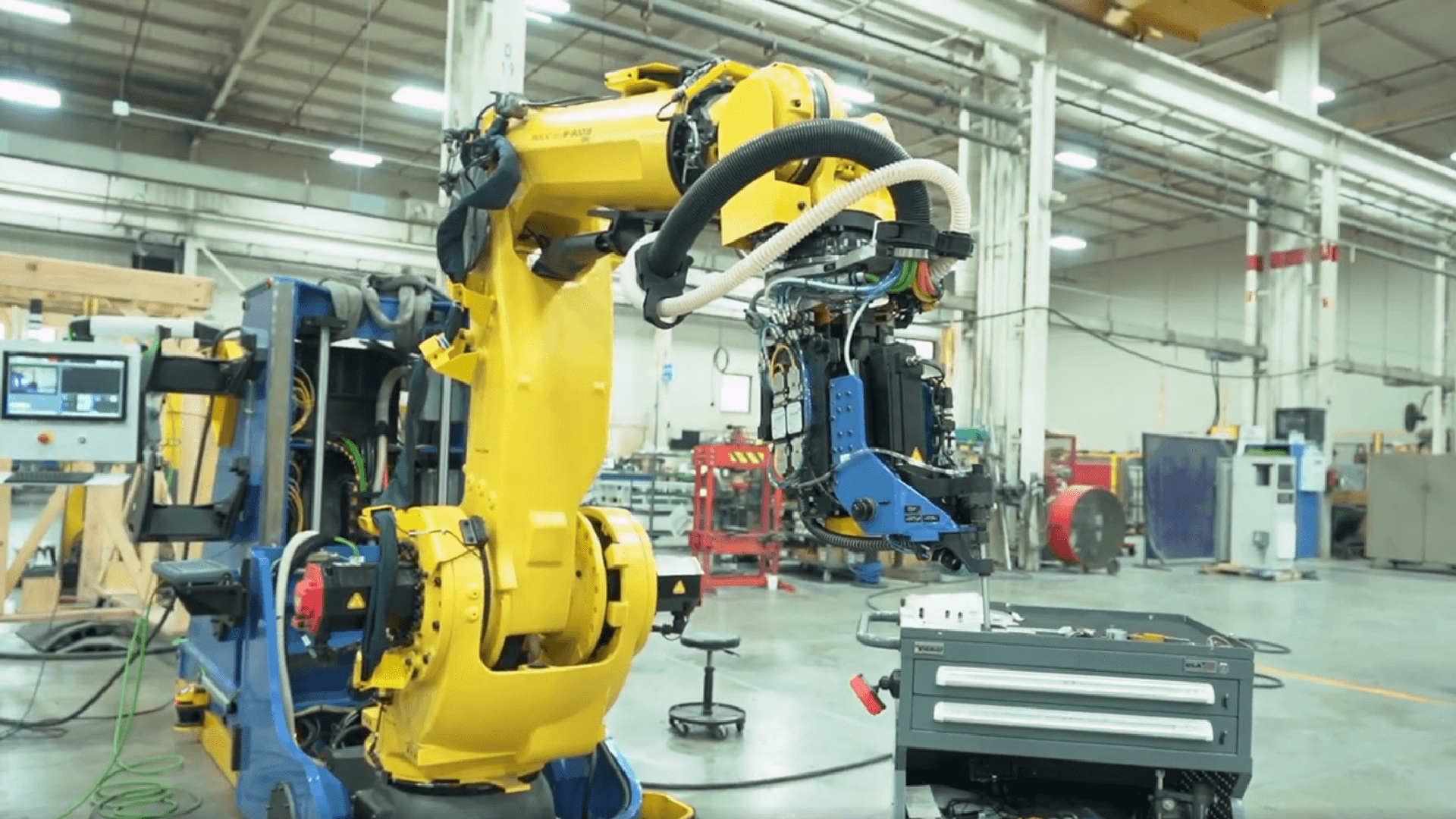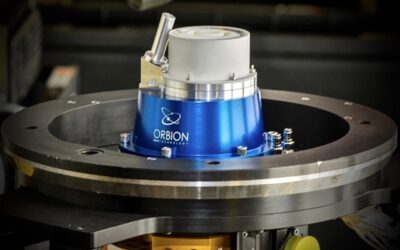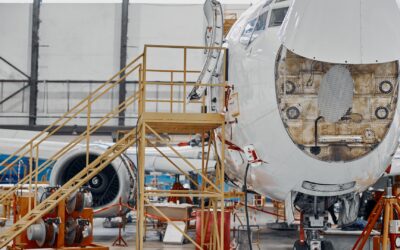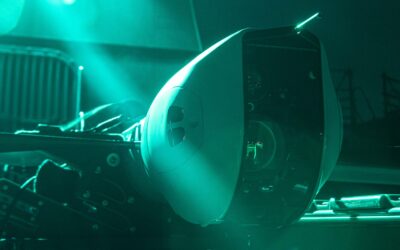Ascent Aerospace had its roots firmly planted in 1937 and has grown into a company reaching toward the stars to complete its mission to “Inspire the Next Generation of Flight.”
“We’ve worked with SpaceX and all the major players,” said Marketing Manager Marisa Bennett. “Our tools are in their factories.”
And those tools built parts that helped construct rockets that have been launched into space. The company provides tooling systems, molding, factory automation, and integration solutions for the commercial aircraft, defense and space industries. It boasts 11 locations throughout North America, Europe and Japan, including five factories with over 700,000 square feet of manufacturing space. It has more than 550 workers and averages over $150 million in annual sales.
Today, Ascent Aerospace is a leader in the industry, but it started 86 years ago when Thomas Speller Sr. created a small company named Gemcor. Speller’s company made automated fastening systems, a process that boosted aircraft production during World War II.
From 1984 to 2001, several other businesses were founded and began working in the aerospace industry. Those companies were Odyssey Industries (1984); Coast Composites (1988); Global Tooling Systems (1995); Brown Aerospace (2000); and AREVA.
Over the following decade, American Industrial Partners acquired those entities, from Gemcor to AREVA, and ultimately restructured itself into Ascent Aerospace in 2019, focusing on product and investment into additive manufacturing.
“We have become the largest tooling company in the industry,” said Bennett. “We build the things that build the things.”
A look at Ascent Aerospace products and services
● Tooling – Assembly, Composite and SmartTooling
● Automation – Drilling and Fastening, Robot Applications and Positioning
● Integration – Concept Formation, Design and Engineering Manufacturing, Product Management
● Manufacturing – Welding, machining, laser tracker inspection.
● Engineering – The company provides an in-house, multi-disciplinary engineering staff, including design, controls, stress analysis and manufacturing support. Other services include robot safety consulting, PLC/HMI/off-line programming, CAD services, start-up and debugging.
● Solution Development – An experienced team develops concepts to aid customers in meeting their manufacturing needs. The process goes from idea to installation and post-installation customer service.
● Additive Manufacturing – Leveraging tooling expertise and internal design capabilities by evaluating the use of 3D-printed jigs and fixtures as part of your sub-assembly and final assembly process. The large format additive manufacturing machine has a 10’x40’ build area capable of depositing a wide variety of thermoplastic materials, including ABS, PC, Nylon, and PEEK.
Ascent Aerospace molds are found on a plane’s wings, fuselage, nacelles and surface.
Examples:
● Boeing 787 – 50% of surface molds; S47/48 composite barrel; upper and lower wing skins; 85% of frame molds; 65% of nacelle molds.
● A350 XWB – 70% of OML molds; upper and lower wing skins, CWB; fuselage sections S11/12, S15, S16/18; 100% of stringers, frames; S11/12, CWB and keel beam trim tools.
The company’s primary focus in Europe is aerospace, but it has branched out into the rail sector and renewable energy.
Giving a boost
While many of the companies Ascent Aerospace works with – such as SpaceX, Boeing and Airbus – are established as giants in the aviation and space industries, there are newcomers to the field who might need some help getting off the ground.
“The key players know what they want,” Bennett said. “They give us the specs and we build to those specs. Our design side of the company is for new customers. As an integrator, we develop a project and see it through design and integration through build and installation.”
She added her company will continue to provide customer service after the new factory is in production.
“We are here from the cradle to the grave,” she said.
The process is laid out in phases:
● Phase 0 – Opportunity Development
● Phase 1 – Initiation (Risk Evaluation)
● Phase 2 – Planning (Communication, Procurement, Project, Execution, Quality)
● Phase 3 -Execution (Project Storyboard and Overview, Risk Management, Testing, Installation)
● Closure – (Acceptance Testing, Onsite Safety)
“We work closely with our customers to work closely with them to create automation solutions,” she explained. “We expanded what we can offer in the development of our end defectors (drilling and fasteners that go on the end of robots). We have the capability to bring it all together at the customer site. We don’t just build and send; we send people to build and install to help put the plant together.”
Future plans and recruiting
Ascent Aerospace isn’t looking to expand out of its current market. Instead, it plans to continue improving existing products and services.
“The evolution (of Ascent Aerospace) is the use of new technologies being used to enhance current processes,” said Bennett, who has been in the industry for 10 years. “People in this segment have tried and true ways of doing things, so developing new technology, products and processes is challenging. We are coming up with new systems to be more efficient, cleaner, better and faster.”
The company invested in a large-scale 3D printer that provides lighter, faster, cheaper tooling options. However, Bennett said 3D printing only answers some product needs.
“While it can provide a better option than traditional tooling, it has to be evaluated based on the customer’s needs,” she explained.
Becoming more efficient is also essential for the environment. The company is always looking for ways to limit waste, reuse and properly dispose of materials.
Working with Automation Alley has also provided a resource for the company.
“Our partnership helps us open doors to new business and suppliers,” Bennet said. “It helps us provide the best solutions for our customers.”
It requires a skilled workforce with diverse skills to continue to provide its extensive list of products and services while creating new and more efficient systems.
A look at the company’s website career portal shows a need for tool builders, tool makers, sandblasters, painters, welders, machinists, laser tracker operators, benchers and assemblers, and those jobs are just for the factory floor.
There is also a need for accountants, project managers, account managers, programmers, buyers and shipping schedulers, inventory specialists and 3D designers.
The need to fill these roles will continue, and Ascent Aerospace is showcasing the need for highly-skilled workers to high school students in the hope they pursue a career in the industry.
“We participate in Manufacturing Day in October,” Bennett said. “We host groups of students throughout the U.S. and show them the real-life applications and job opportunities out there for them.”
The Detroit area has a significant imprint on the aerospace industry, Bennet said, with 90% of the tooling suppliers located in southeast Michigan.
For now and the foreseeable future, the sky and space are areas for immense growth and technological advancement.
“Exciting time in industry with commercial (airlines) making a comeback,” Bennet said. “New planes are replacing the old fleet. There’s a lot of investment in space exploration at this time as well as defense. It’s an exciting time to be in this industry.”
And Ascent Aerospace plans to be involved as it strives to achieve its mission to “Inspire the Next Generation of Flight.”
For a more in-depth look at Ascent Aerospace’s products and services, visit ascentaerospace.com.




